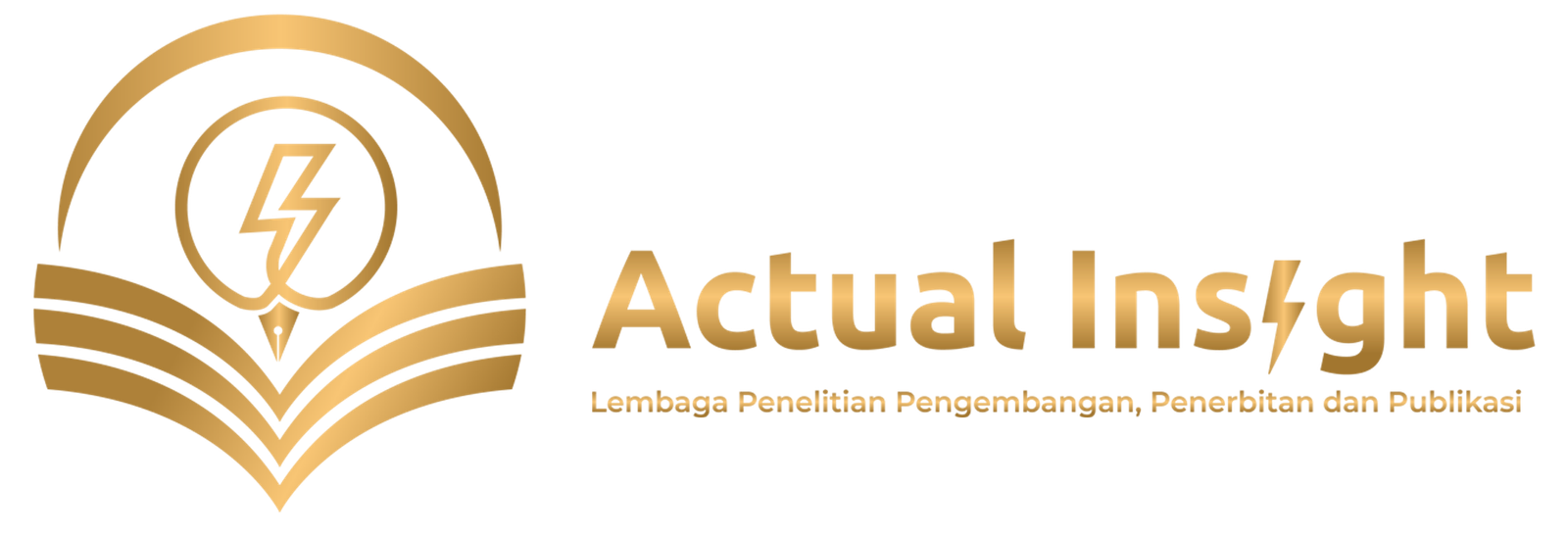

Analisis Promosi oleh Dokter dalam Konteks Kepatuhan terhadap Hukum dan Etika Medis di Indonesia
-
Sekolah Tinggi Hukum Militer
-
Sekolah Tinggi Hukum Militer
-
Sekolah Tinggi Hukum Militer
DOI:
https://doi.org/10.56393/nomos.v5i4.3477Keywords:
-
Indonesia hingga saat ini belum memiliki regulasi yang eksplisit dan komprehensif yang mengatur praktik promosi dokter di media sosial. Ketentuan dalam Kode Etik Kedokteran Indonesia (KODEKI) dan Undang-Undang Praktik Kedokteran No. 29 Tahun 2004 hanya mengatur promosi secara umum, tanpa menjawab dinamika baru seperti endorsement, sponsorship, dan konten terselubung. Studi ini menggunakan pendekatan yuridis normatif dengan analisis terhadap peraturan nasional dan perbandingan dengan negara lain. Hasil kajian menunjukkan bahwa promosi oleh dokter harus berfungsi sebagai sarana edukatif, tidak bersifat komersial, serta tidak menyesatkan atau melanggar privasi pasien. Celah hukum muncul karena belum adanya pedoman etik digital resmi dari IDI atau KKI yang mengatur promosi di media sosial. Studi ini menegaskan pentingnya pembentukan norma hukum dan etik khusus (lex specialis) untuk promosi digital oleh dokter. Hasil penelitian ini diharapkan dapat memperkuat kerangka hukum dan etik dalam praktik kedokteran, serta menjadi dasar bagi penyusunan kebijakan publik terkait promosi layanan medis di era digital.
-
Alves, T. L., Lexchin, J., & Mintzes, B. (2018). Medicines information and the regulation of the promotion of pharmaceuticals. Science and Engineering Ethics, 25(4), 1167–1192. https://doi.org/10.1007/s11948-018-0041-5
Anand, C., & Dweik, R. (2021). Physician interactions with industry: Striking the right balance. Journal of the National Comprehensive Cancer Network, 20(13), 1–3. https://doi.org/10.6004/jnccn.2021.7100
Chimonas, S., Mamoor, M., Zimbalist, S., Barrow, B., Bach, P., & Korenstein, D. (2021). Mapping conflict of interests: Scoping review. BMJ, 375, e066576. https://doi.org/10.1136/bmj-2021-066576
Comer, A. R., & Young, J. (2025). Physician engagement with private equity firms. AMA Journal of Ethics, 27(5), E341–E345. https://doi.org/10.1001/amajethics.2025.341
DeCamp, M., & Sulmasy, L. S. (2021). Ethical and professionalism implications of physician employment and health care business practices: A policy paper from the American College of Physicians. Annals of Internal Medicine, 174(6), 844–851. https://doi.org/10.7326/M20-7093
Fadlallah, R., Nas, H., Naamani, D., El-Jardali, F., Hammoura, I., Al-Khaled, L., Brax, H., Kahale, L., & Akl, E. A. (2016). Knowledge, beliefs and attitudes of patients and the general public towards the interactions of physicians with the pharmaceutical and the device industry: A systematic review. PLoS ONE, 11(8), e0160540. https://doi.org/10.1371/journal.pone.0160540
Garattini, L., & Padula, A. (2019). Conflict of interest disclosure: Striking a balance? European Journal of Health Economics, 20, 633–636. https://doi.org/10.1007/s10198-019-01032-0
Ghafari, B. M., Khodaparast, T., & Hasanabadi, P. (2024). Medical law; promotion of medicine curriculum: A letter to editor. Medical Education Online, 29(1), 1. https://doi.org/10.1080/10872981.2023.2290333
Gultom, A. F. (2024). Objektivisme nilai dalam fenomenologi Max Scheler. De Cive: Jurnal Penelitian Pendidikan Pancasila dan Kewarganegaraan, 4(4), 141–150. https://doi.org/10.56393/decive.v4i4.2107
Indonesia. (1999). Undang-Undang Nomor 8 Tahun 1999 tentang Perlindungan Konsumen.
Indonesia. (2004). Undang-Undang Nomor 29 Tahun 2004 tentang Praktik Kedokteran.
Indonesia. (2008). Undang-Undang Nomor 11 Tahun 2008 tentang Informasi dan Transaksi Elektronik.
Indonesia. (2021). Peraturan Pemerintah Nomor 47 Tahun 2021 tentang Penyelenggaraan Bidang Perumahsakitan.
Kang, J. (2020). Ethics and industry interactions: Impact on specialty training, clinical practice, and research. Rheumatic Disease Clinics of North America, 46(1), 119–133. https://doi.org/10.1016/j.rdc.2019.09.007
Kementerian Kesehatan Republik Indonesia. (2014). Peraturan Menteri Kesehatan Nomor 9 Tahun 2014 tentang Pelayanan Perizinan Berusaha Terintegrasi Secara Elektronik Sektor Kesehatan.
Konsil Kedokteran Indonesia. (n.d.). Peraturan Konsil Kedokteran Indonesia (KKI).
Majelis Kehormatan Etik Kedokteran Indonesia. (n.d.). Kode Etik Kedokteran Indonesia (KODEKI).
Mitchell, A., Sarpatwari, A., & Bach, P. (2022). Industry payments to physicians are kickbacks. How should stakeholders respond? Journal of Health Politics, Policy and Law, 47(6), 815–833. https://doi.org/10.1215/03616878-10041205
Muhammad, S. (2025). Medico-legal knowledge among healthcare professionals: A cross-sectional study. Current Trends in Internal Medicine, 9, 239. https://doi.org/10.29011/2638-003X.100239
Petersilie, F. (2019). Legal limits of (online) marketing for doctors. Aktuelle Urologie, 50(4), 413–423. https://doi.org/10.1055/a-0893-6315
Prawiroharjo, P., & Dianita, P. (2017). Dokter beriklan: Sebuah tinjauan menurut Kode Etik Kedokteran Indonesia (KODEKI). Jurnal Etika Kedokteran Indonesia, 1(1), 13. https://doi.org/10.26880/jeki.v1i1.4
Prawiroharjo, P., & Librianty, N. (2017). Tinjauan etika penggunaan media sosial oleh dokter. Jurnal Etika Kedokteran Indonesia, 1(1), 31. https://doi.org/10.26880/jeki.v1i1.7
Purcarea, V. L. (2019). The impact of marketing strategies in healthcare systems. Journal of Medicine and Life, 12(2), 93–96. https://doi.org/10.25122/jml-2019-1003
Romeiro, D. A., Mascarenhas, I. de L., & Godinho, A. M. (2022). Non-compliance with medical ethics in advertising: Impacts on civil liability. Revista Bioética, 30(1), 27–35. https://doi.org/10.1590/1983-80422022301503EN
Salbu, S. R. (2021). Professional medical judgment and pharmaceutical marketing: Drawing legal and ethical lines around conflict of interest. William & Mary Business Law Review, 12(1), 23. https://scholarship.law.wm.edu/wmblr/vol12/iss1/3
Shah, P., Thornton, I., Kopitnik, N. L., & Hipskind, J. E. (2024). Informed consent. In StatPearls. StatPearls Publishing. https://www.ncbi.nlm.nih.gov/books/NBK430827/
Shetty, N. (2023). Medical ethics and law. Indian Journal of Orthopaedics, 57(11), 1744–1747. https://doi.org/10.1007/s43465-023-00972-w
Solomon, M., Radu, G., Hostiuc, M., Margan, M. M., Bulescu, I. A., & Purcarea, V. L. (2016). Ethical issues in advertising and promotion of medical units. Romanian Journal of Ophthalmology, 60(4), 216–218. https://www.ncbi.nlm.nih.gov/pmc/articles/PMC5711284/
Stoll, M., Hubenschmid, L., Koch, C., Lieb, K., & Egloff, B. (2022). Physicians’ attitudes towards disclosure of payments from pharmaceutical companies in a nationwide voluntary transparency database: A cross-sectional survey. BMJ Open, 12(6), e055963. https://doi.org/10.1136/bmjopen-2021-055963
Weise, M. (2016). Medical ethics made easy. Professional Case Management, 21(2), 88–94. https://doi.org/10.1097/NCM.0000000000000151
Wijaya, I. M. T., Sihotang, E., & Wiratny, N. K. (2024). Legal protection for the medical profession in treating unconscious emergency patients without informed consent. Journal of Social Research, 3(7), 1–6. http://ijsr.internationaljournallabs.com/index.php/ijsr
Yazdani, S., Azandehi, S., Ghorbani, A., & Shakerian, S. (2018). Explaining the process of choosing clinical specialties in general medical graduates: A grounded theory. Electronic Journal of General Medicine, 15(6), em89. https://doi.org/10.29333/ejgm/93457
Zarei, E., Ghaffari, A., Nikoobar, A., Bastami, S., & Hamdghaddari, H. (2023). Interaction between physicians and the pharmaceutical industry: A scoping review for developing a policy brief. Frontiers in Public Health, 10, 1072708. https://doi.org/10.3389/fpubh.2022.1072708
-
Downloads
Download data is not yet available.
How to Cite
Indexed by:

This work is licensed under a Creative Commons Attribution-ShareAlike 4.0 International License.














